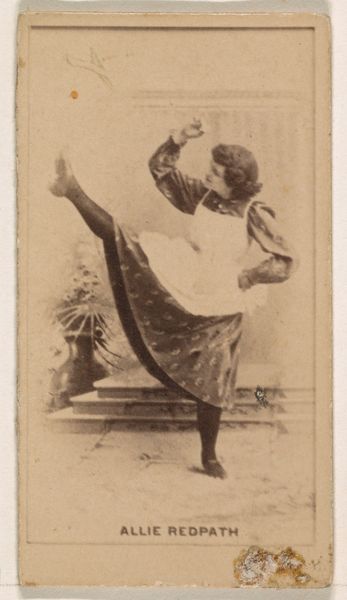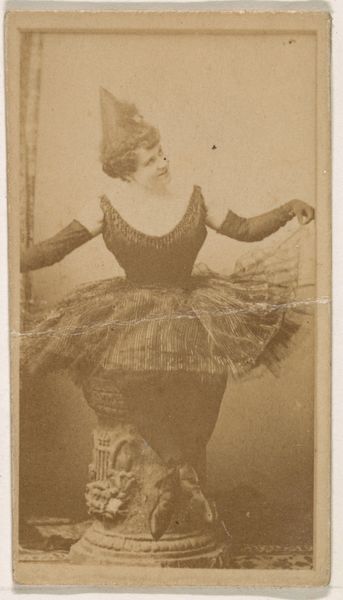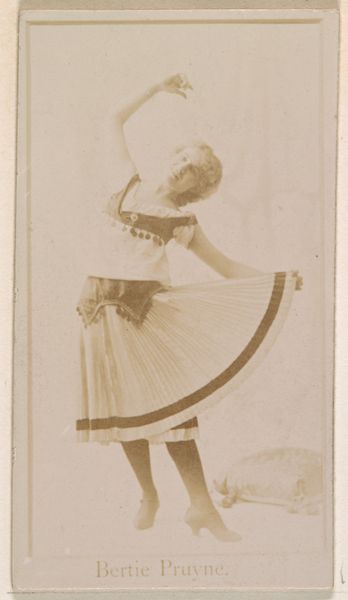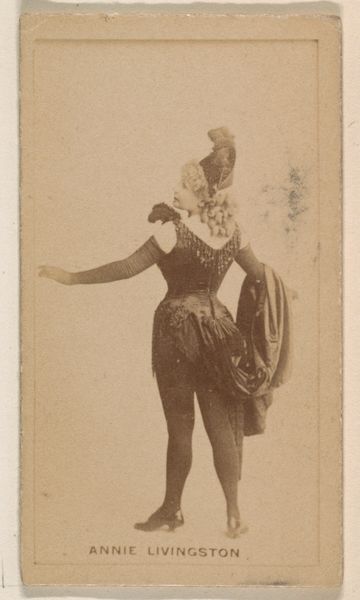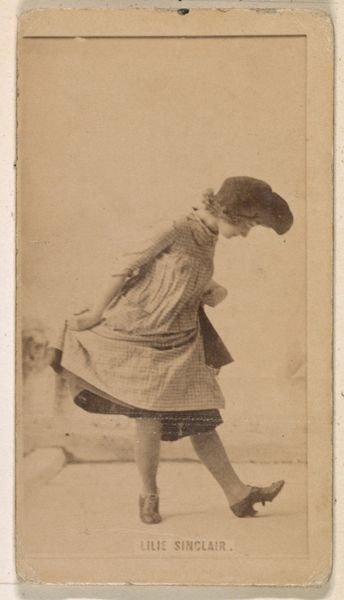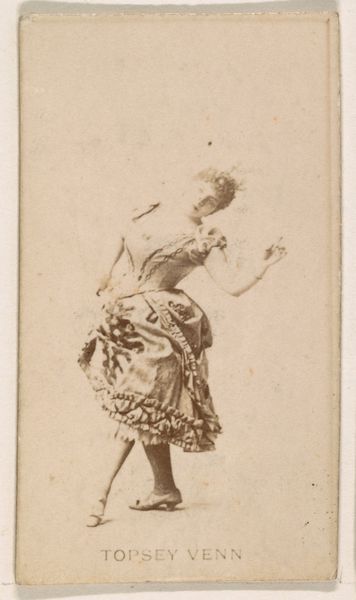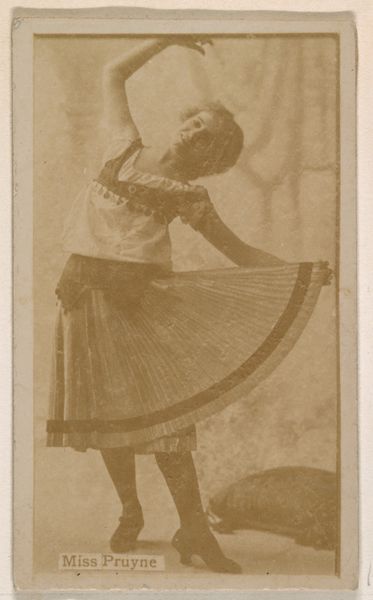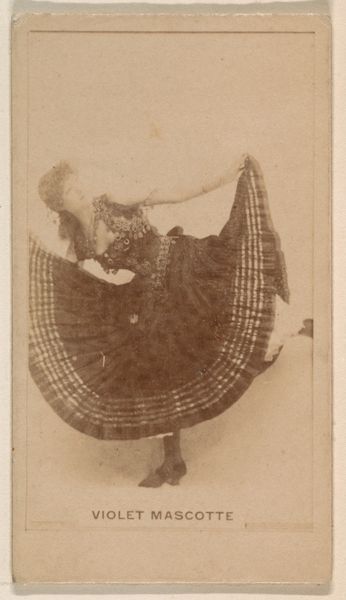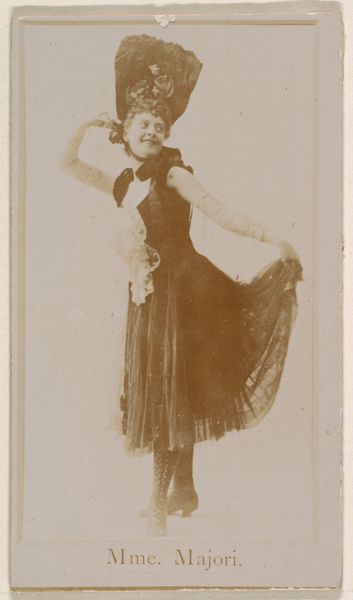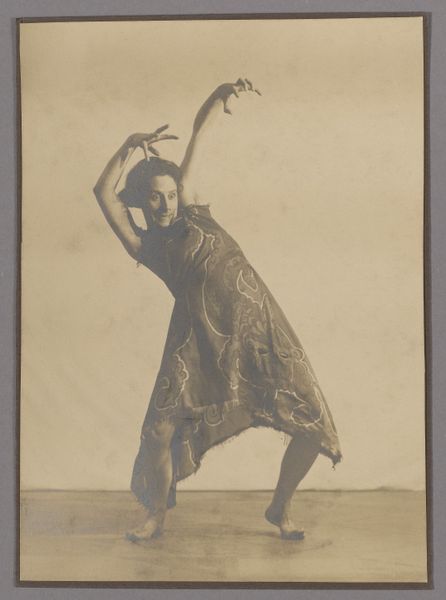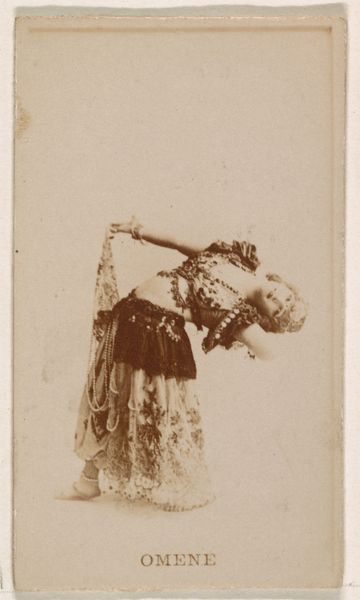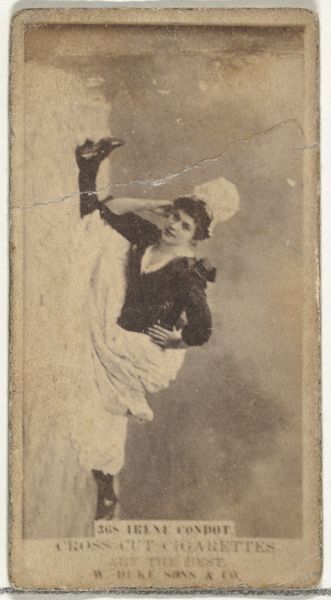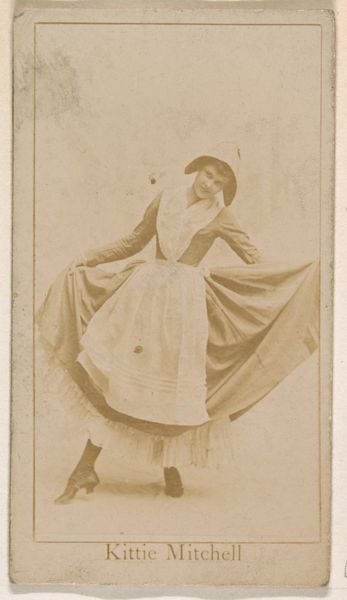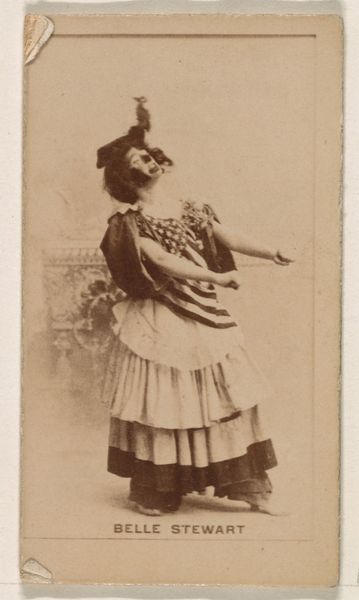
Allie Redpath, from the Actresses series (N245) issued by Kinney Brothers to promote Sweet Caporal Cigarettes 1890
0:00
0:00
drawing, print, photography
#
portrait
#
drawing
# print
#
figuration
#
photography
#
profile
Dimensions: Sheet: 2 1/2 × 1 7/16 in. (6.4 × 3.7 cm)
Copyright: Public Domain
Curator: Let's consider this fascinating card, one in a series of actresses produced around 1890 by the Kinney Brothers Tobacco Company. This particular example depicts Allie Redpath. It's from the Actresses series (N245) and was issued to promote their Sweet Caporal Cigarettes. What are your first thoughts? Editor: I am immediately struck by the seemingly impossible pose—the theatricality of it all. There is such artificiality here that raises questions for me about the female body as a marketing tool during the late 19th century. It seems a complex blend of idealized femininity and commercial exploitation. Curator: Indeed. Tobacco cards like this were hugely popular; a cultural phenomenon, really. They served as a kind of miniature promotional poster, distributed widely. Kinney Brothers utilized photography and drawing in their printing processes to capture likenesses of popular actresses, like Allie Redpath, increasing their product’s visibility and desirability. Consider that these images circulated in a world before mass media as we know it today. Editor: The card seems to sexualize Redpath through the suggestion of movement; this isn't simply a passive portrait. Even though we understand that this portrait captures a mere instance of that potential movement, to see a woman represented in an active rather than a stationary position speaks to the period's cultural interest in the performance, commodification, and ultimately the possession of feminine vitality. And who gets to do what with whose body in capitalism. Curator: Absolutely. Furthermore, consider that Redpath and other actresses became known as commodities through cards like this. It helped popularize them but simultaneously situated their image as something to be collected and traded, effectively objectifying their identity in ways that directly promoted consumption of Sweet Caporal cigarettes. These actresses represented an evolving ideal that fueled cultural desire and tobacco sales simultaneously. Editor: Precisely. Seeing Redpath's image reproduced and disseminated through this kind of commercial distribution has unsettling resonances to today’s ubiquitous media imagery, suggesting enduring links between women’s representation, consumerism, and commodified identities. Looking at this raises crucial questions about how little some systems have evolved. Curator: Certainly, thinking about the card and what it might reflect about evolving concepts regarding commercialized portraiture really shifts our understanding. Thanks for providing those insights. Editor: Thank you; those points certainly added new layers of complexity to my initial views.
Comments
No comments
Be the first to comment and join the conversation on the ultimate creative platform.
